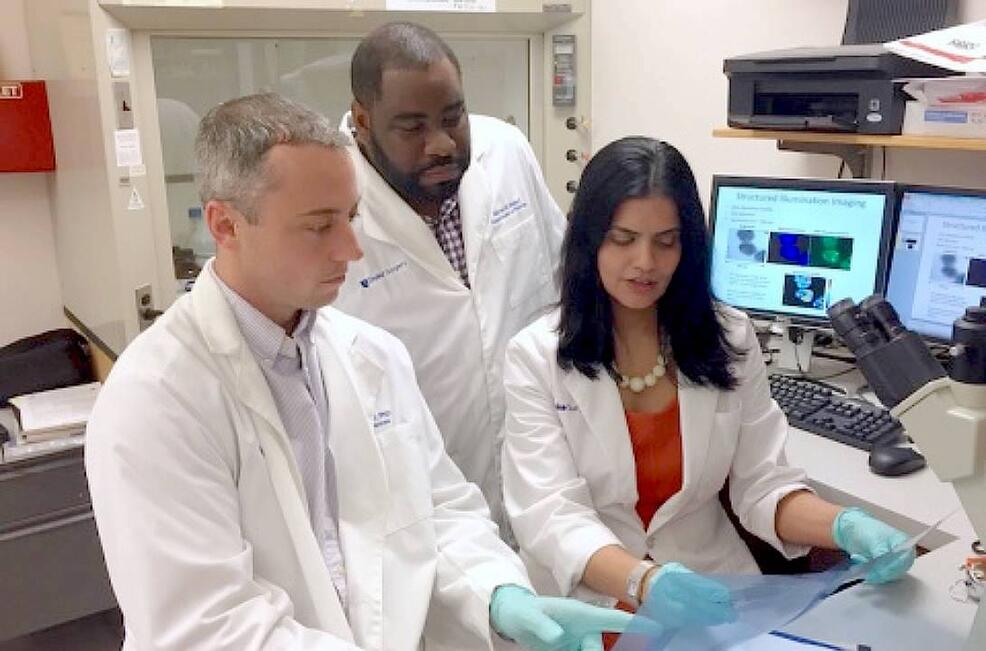Overview
The Duke Consortium for Inflammatory Breast Cancer was started in 2014 to identify innovative ways to address the unique aspects of inflammatory breast cancer and drug discovery. The multidisciplinary center brings together investigators and clinicians to better understand, prevent, and treat inflammatory breast cancer. It is a springboard for multi-PI program project initiatives and grant applications with local universities, including North Carolina Central University, the University of North Carolina at Chapel Hill, and North Carolina State University. The Consortium works with advocates and community health providers as well as the World IBC Consortium investigators across many institutions.

